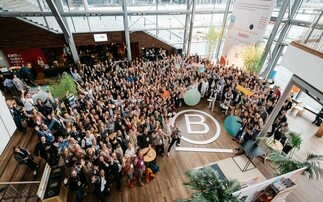Electronics giant joins raft of companies unveiling major climate change commitments at Paris Summit
Philips has become the latest global company to announce plans to accelerate its emissions reductions efforts, declaring it will become "carbon neutral" by 2020.
The company made the announcement earlier this week on the sidelines of the Paris climate summit, confirming it also plans to source 100 per cent of its power from renewable sources and accelerate the roll out of its ultra-efficient LED lighting technologies.
The company said it has reduced its carbon emissions by 40 per cent since 2007 and increased its share of renewable energy to 55 per cent. However, it now "wants to accelerate its emissions reductions and achieve carbon neutrality in the next five years".
A spokeswoman for the company declined to be drawn on the precise scale of the emission reductions Philips intends to deliver over the next five years, but she insisted steps were being taken to deliver significant overall reductions.
Specifically, the company undertakes regular energy audits to identify efficiency projects that can deliver a payback period within three years, while energy saving "walk throughs" have been organised by the companies purchasing department to identify possible energy saving actions.
Moreover, planned upgrades to the company's glass furnaces are expected to result in further emissions savings.
"As far as the remaining emissions resulting from on-site fuel combustions, business travel and logistics we will have to use offsets," the company's spokeswoman said. "Currently this is about 65 per cent of our carbon footprint, however we have plan to significantly reduce them by the use of renewable sources for natural gas and less carbon intensive solutions in logistics."
Meanwhile, Eric Rondolat, chief executive at Philips Lighting, urged governments to step up efforts to deliver an ambitious international climate change deal that can help accelerate the deployment of clean technologies, such as LEDs.
"As it stands, we've reached the climate change checkout and all the contributions from around the world have proved insufficient to prevent a potentially catastrophic rise in global temperatures," he said. "The world must set more ambitious goals to improve energy efficiency. Faster adoption of LED lighting, and a drive to renovate existing city infrastructure and greater use of solar-powered LED lighting would have a huge impact."
This article is part of BusinessGreen's Road to Paris hub, hosted in association with PwC.








